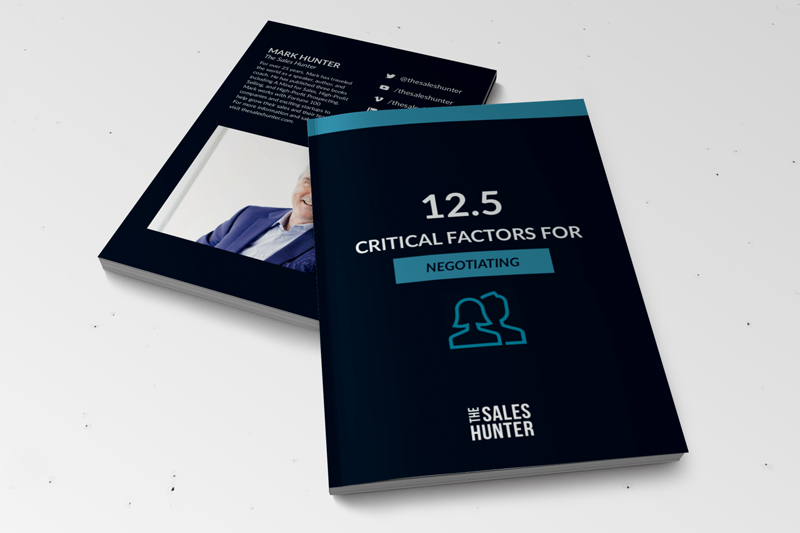 You find yourself suddenly in a sales negotiation and the only thing you know to do is to let the other person go first.
You find yourself suddenly in a sales negotiation and the only thing you know to do is to let the other person go first.
Let me shoot that strategy down by saying you should open first as the salesperson, and you should do it with a huge out-of-this-world opening statement or demand.
The idea is it’s so preposterous, it will make anything else you ask for seem reasonable.
I’m not advocating this strategy as being the right approach all the time. There are instances, though, where you know you have the upper hand and you know this negotiation will never lead to another encounter with the other party.
There’s a great article in the Wall Street Journal by Jason Gay that does a phenomenal job of pointing out how the strategy works. His article, “What to Do When You Catch a Homer” should become the poster child example of how to use the big bold wild opening demand strategy.
His article is a comical commentary on demands a fan should make if they catch a home-run ball that the player or team wants back.
I’m sure Jason Gay, a fabulous WSJ writer, didn’t mean to write this as a case study for how to negotiate in business, but it’s the best example I’ve seen in a long time.
Keep in mind that opening with a big bold demand likely won’t work if you will have to deal with the other party again or where you may find yourself having to negotiate with others who may find out you have used this approach. The reason I say this is because this approach can be very inflammatory in terms of rubbing egos the wrong way or allowing false perceptions of you to be formed.
Another reason it is good to be aware of the big-bold-demand strategy is because it may very well be used against us someday. It’s important to be ready for it when it does occur. The key to this approach is in the power of contrast or in wearing the other party down to the point where they will make a concession.
Whether you are the one making the bold demand — or the one on whom it is being made — you need to not be alarmed and need to know how to navigate the sales negotiation.
Copyright 2012, Mark Hunter “The Sales Hunter.” Sale Motivation Blog.













